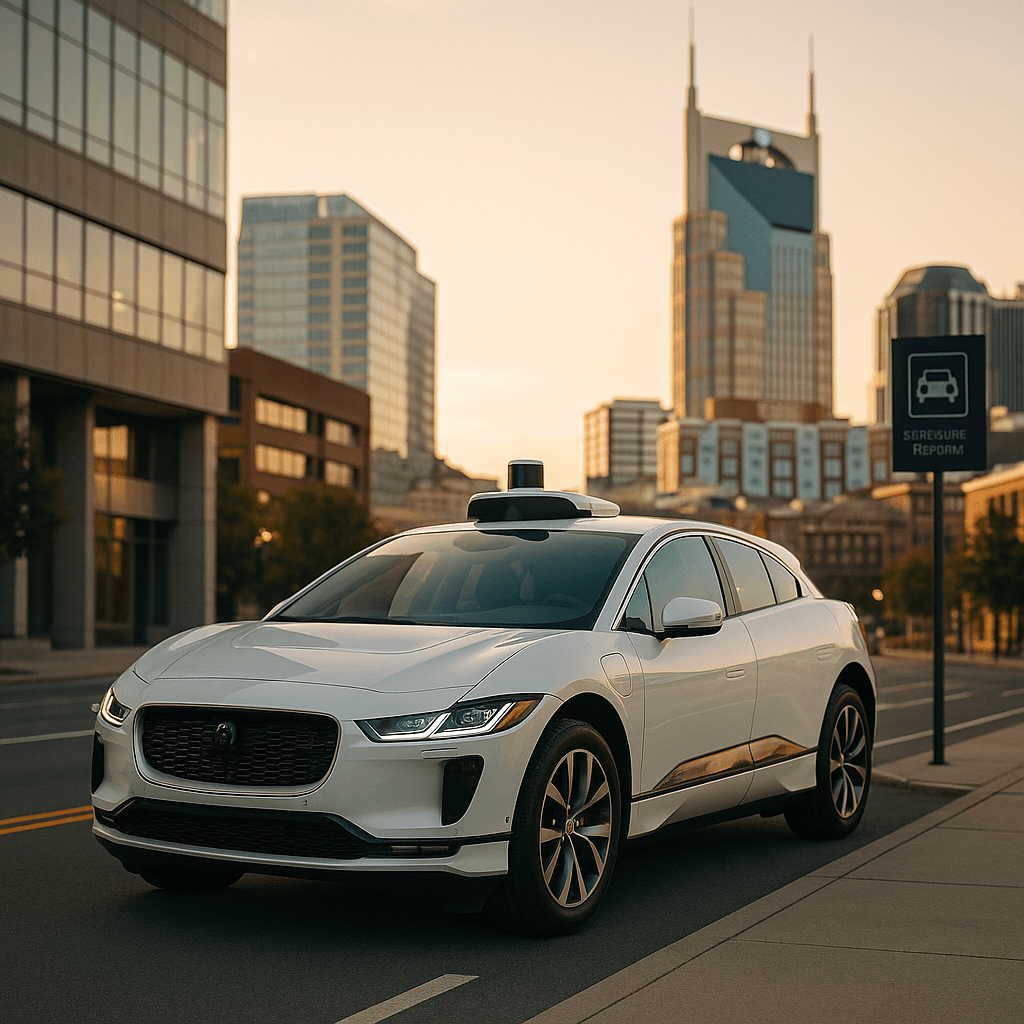Google's Waymo just locked in Nashville as its next robotaxi battleground, partnering with Lyft in a 2026 launch that could reshape how Americans access autonomous vehicles. The deal represents Waymo's biggest geographical expansion yet and signals a major shift in the autonomous vehicle industry's go-to-market strategy.
Google's Waymo just dropped a bombshell that's got the autonomous vehicle world buzzing. The Alphabet subsidiary announced Wednesday it's teaming up with Lyft to bring robotaxis to Nashville by 2026, marking a major expansion of its autonomous vehicle footprint and a strategic shift toward partnership-driven growth.
The Nashville launch comes as Waymo aggressively expands beyond its Phoenix origins into Atlanta, Austin, Los Angeles, and San Francisco. According to company statements, testing of the all-electric Jaguar I-Pace fleet begins in the coming months, with public access rolling out next year.
But here's where it gets interesting - this isn't just another market expansion. The Nashville partnership represents Waymo's evolution from a standalone robotaxi operator into an autonomous vehicle technology provider. Earlier this year, the company struck a similar deal with Uber in Atlanta and Austin, signaling a fundamental shift in how self-driving companies plan to scale.
"We're seeing Waymo realize that going it alone isn't the fastest path to ubiquity," says one industry analyst who requested anonymity. The company's previous attempts at massive fleet buildouts and city-by-city launches proved capital-intensive and slow.
The Lyft arrangement mirrors Waymo's Uber partnership structure but with one crucial difference. In Nashville, customers get dual access - they can hail rides directly through the Waymo app initially, then through both platforms once the service expands. That's unlike Atlanta and Austin, where riders must use Uber's app and hope to get matched with a robot instead of a human driver.
Lyft brings serious operational muscle to the table. The company will handle fleet services through its wholly owned subsidiary Flexdrive, including vehicle readiness, maintenance, and depot operations. Lyft is even investing in a purpose-built autonomous vehicle facility specifically for the Nashville fleet.












